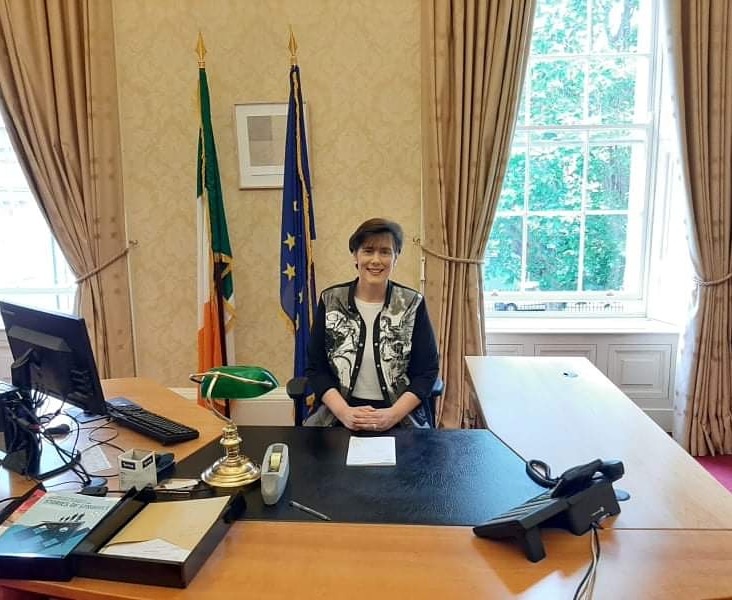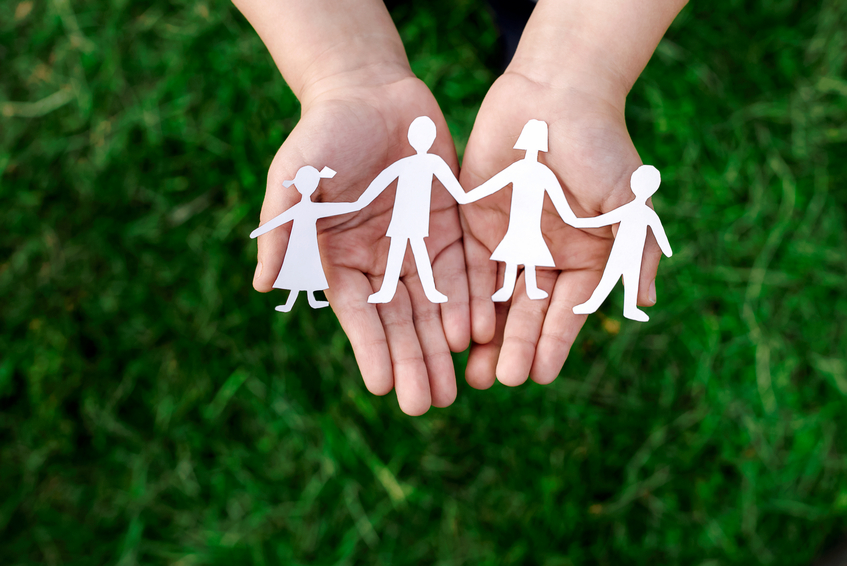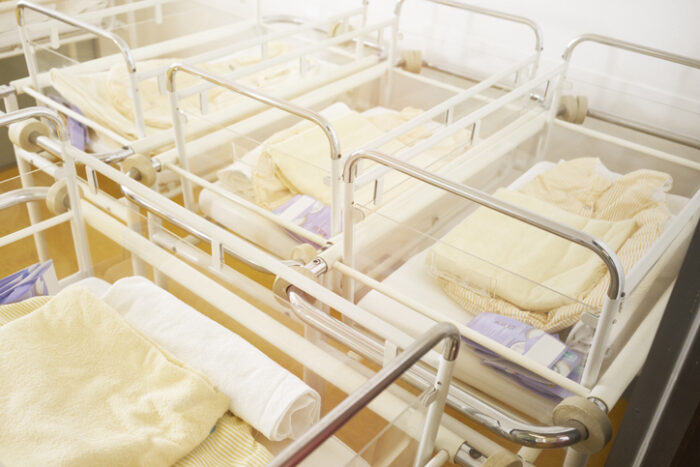
Attempts by Government to push religious orders to pay more than a quarter of a billion euro to people affected by mother and baby homes has been described as a “form of extortion”, by Senator Ronan Mullen.
Speaking to The Irish Catholic, Senator Mullen said that where religious orders wronged people according to the standards of the time, or if any of their members abused people or failed to act on reports of abuse, then they should certainly contribute.
“But if this is about general societal atonement for the harshness of the past, then it is the State that should pay.”
Minister for Children Norma Foley is exploring how the orders might be legally forced to pay, raising the spectre of asset and bank account seizure.
Surprisingly, the Legion of Mary have also been subject to the threat of forced pay-outs despite their exemplary record in helping mothers raise their babies themselves.
Senator Mullen said: “It shows how divorced from reality the whole push to get money out of religious organisations is, that they even target the Legion of Mary which by the standards of the time was very enlightened and did their best in their homes to help mothers who wanted to keep their babies”.

Older adults now outnumber children in 11 states and almost half of the counties in the U.S.
The U.S. population age 65 and older rose by 3.1% (to 61.2 million) while the population under age 18 decreased by 0.2% (to 73.1 million) from 2023 to 2024, according to the Vintage 2024 Population Estimates released today by the U.S. Census Bureau.
The data show the population continued to age, with the share of the population age 65 and older steadily increasing from 12.4% in 2004 to 18.0% in 2024, and the share of children declining from 25.0% to 21.5%.
As recently as 2020, there were just three states where older adults outnumbered children. By 2024, this number had increased to 11.
Similarly, from 2020 to 2024, the number of U.S. metro areas with more older adults than children increased from 58 to 112. This represents nearly 30% of the nation’s 387 metro areas.
In 2020, 31.3% (or 983) of the nation’s 3,144 counties had more older adults than children. This figure increased to almost 45% (1,411 counties) in 2024.

A state law that requires porn sites to verify that its users are at least 18 years old is constitutional, according to a ruling of the U.S. Supreme Court.
In a 6-3 decision written by Justice Clarence Thomas, the court’s majority found that Texas is within its authority “to shield children from sexually explicit content” and that this authority “necessarily includes the power to require proof of age” to access pornographic material.
24 states have enacted age verification laws to access pornography on the internet in recent years. The ruling sets nationwide precedent for lower courts reviewing legal challenges to laws in all those other states.
The Institute for Family Studies welcomed the ruling saying it was “a landmark win for America’s children and families, who have been suffering from a Big Porn industry that has been shielded from liability for systemically failing to keep underage users off of its platforms”.

A slight uptick in births was recorded last year in England and Wales, although the figure remained at an extremely low level, according to the Office for National Statistics, far below replacement level.
The news comes as Bridget Phillipson, the education secretary, has urged Britons to have more children and at a younger age, warning of the “worrying repercussions” of a decline in birthrates.
Some 594,677 live births were registered last year, up 0.6 per cent from 2023, but still the third-lowest total since 1977.
Some 33.9 per cent of children born in 2024 were born to mothers who were born outside the UK, the highest proportion since records began in 2001, when the figure was 17 per cent.
There was a “notable increase” in live births to fathers aged 60 and older. The number rose by 14 per cent, from 942 in 2023 to 1,076 in 2024.

The UK’s Education Secretary has urged Britons to have more children because of the “worrying repercussions” of a plummeting birth rate.
Bridget Phillipson said too many young people were put off having families because of the huge cost of housing and childcare.
She said her childcare plans would encourage people to have children who otherwise would have rejected the idea.
This stands in stark contrast to PM, Sir Keir Starmer, who last year said it was not his place to tell people how many children to have, or to set out a national “birth plan”.
In an article for The Telegraph, Ms Phillipson wrote: “I want more young people to have children, if they so choose.”
Several European leaders have called for their citizens to have bigger families to help grow their economies and deal with the pressures of ageing populations.
The fertility rate in England and Wales went down to 1.44 babies per woman in 2023 , its lowest value since records began in 1938 and well below the 2.1 needed to keep a population steady.
The lower birth rate means there will be fewer workers to care for the elderly and to keep public services adequately funded through their taxes.

The number of long-term residential care beds and home support hours for older people will need to increase by at least 60pc and maybe as much as 94pc, in the next fifteen years, according to the Economic and Social Research Institute.
The projected rise in requirements is driven by both decreasing births and inward migration causing rapid populating ageing.
The research considered three scenarios based on varying assumptions about population growth and ageing.
Nonetheless, under the assumed scenarios, short stay bed requirements are projected to grow between 72 to 94pc; long stay bed requirements, between 61 to 80pc; and home support hours to grow between 57 to 91pc.

The European Parliament has voted for robust age verification tools to prevent children from accessing online pornographic content.
The measure was part of an update to EU-wide definitions of the crimes linked to child sexual abuse (CSA).
Negotiations will now begin between the Parliament, the Council of the EU, which represents national governments, and the European Commission to determine the final shape of the law.
The proposed new Directive on Child Sexual Abuse Material (CSAM) would put an onus on pornographic websites to prevent children from accessing them.
It reads: “Disseminating pornographic content online without putting in place robust and effective age verification tools to effectively prevent children from accessing pornographic content online shall be punishable by a maximum term of imprisonment of at least 1 year.” (AM 186)
The move was welcomed by the Federation of Catholic Family Association in Europe (FAFCE), calling it “a major victory to protect children from pornographic platforms, that profit from suffering and violence”.
Vincenzo Bassi, President of FAFCE declared : “We welcome everything that supports the role of parents in their primary responsibility of educators: this proposal goes in that direction.”

Pope Leo XIV has called Natural Law “an essential reference point” for international relations.
Speaking to a group of legislators, he said that a shared point of reference in political activity is the natural law, “written not by human hands, but acknowledged as valid in all times and places, and finding its most plausible and convincing argument in nature itself.”
He quoted Cicero’s words on this in De Re Publica: “Natural law is right reason, in accordance with nature, universal, constant and eternal, which with its commands, invites us to do what is right and with its prohibitions deters us from evil”
The Pope added that natural law is universally valid, apart from and above other more debatable beliefs, and it constitutes “the compass by which to take our bearings in legislating and acting, particularly on the delicate and pressing ethical issues that, today more than in the past, regard personal life and privacy.”

The last remaining Christian town in the West Bank was attacked by Israeli settlers last Wednesday.
Taybeh is a village of about 1,500 people with three churches, located some 30 km north of Jerusalem and east of Ramallah. More than 600 residents are Latin Catholics, while the rest are Greek Orthodox or Greek Melkite Catholics. It is a frequent stop for Irish pilgrims to the Holy Land who visit the local Taybeh Brewing Company.
“Yesterday evening, settlers attacked homes in the Karamelo roundabout, an area at the eastern entrance to the village,” said local parish priest Fr Bashar Fawadleh.
The incident “coincided with an attack by dozens of settlers on the village of Kafr Malik, which is near us, and which led to the death of three martyrs and the burning of many vehicles and homes.”
The deadly clash in Kafr Malik was the latest instance of armed settlers carrying out violent raids against Palestinian villages in the West Bank, often with impunity in the presence of Israeli soldiers or directly with their help.
There has also been an ongoing campaign of harassment with arson attacks on crops, theft of equipment, and deliberately releasing cattle into the fields to destroy harvests.
Taybeh resident Nadim Khoury, owner of the well-known Taybeh Brewery and Winery, told OSV News that earlier in June settlers entered land belonging to his cousin and let the sheep eat all the new crops he had planted and took his water tank so he would not be able to water any new crops.

Violence against Christians “seems to be raging … with a diabolical intensity previously unknown,” according to Pope Leo XIV.
He was speaking in the Vatican today with members of Aid Agencies for the Eastern Churches (ROACO), and cited Ukraine, Gaza, the Middle East and the recent “terrible attack” on the Church of Saint Elias in Damascus.
The pontiff said the lands of the Christian East are, as never before, “devastated by wars, plundered by special interests, and covered by a cloud of hatred that renders the air unbreathable and toxic”.
He added: “It is truly distressing to see the principle of ‘might makes right’ prevailing in so many situations today, all for the sake of legitimising the pursuit of self-interest. It is troubling to see that the force of international law and humanitarian law seems no longer to be binding, replaced by the alleged right to coerce others. This is unworthy of our humanity, shameful for all mankind and for the leaders of nations”.